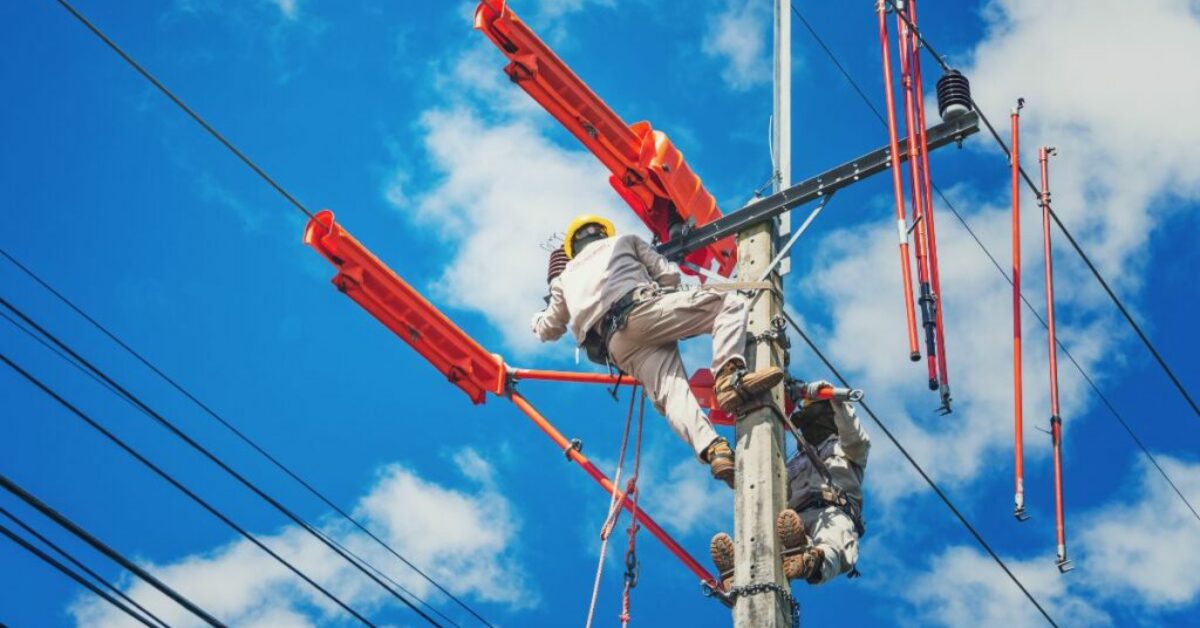How To Become A Groundman?
If you’re interested in a career as a groundman, it’s important to understand the role, skills required, and the path to getting hired. In this article, we’ll explore the steps and skills needed to become a groundman, the benefits of the job, and what this career entails.
Steps To Becoming A Groundman
A groundman typically works alongside linemen and tree trimmers in the electrical industry. Groundmen are responsible for supporting the linemen and tree trimmers while they work on power lines or conducting routine maintenance on power poles and electrical lines. Getting started as a groundman is not complicated, but it does require some preparation.
- Educational Requirements
A high school diploma or GED is typically required to become a groundman. However, some employers require additional certifications or training before hiring a new employee. You may want to consider taking a pre-apprenticeship program in the electrical industry to provide you with some basic knowledge of the trade before applying for a job as a groundman.
It is also worth noting that having a strong understanding of math and science is important for this field. Groundmen need to be able to calculate voltage, amperage, and resistance, as well as understand the principles of electricity and how it works. Taking courses in these subjects can be beneficial for those interested in becoming a groundman. - Apprenticeship Program
If you want to become a groundman, it’s important to enroll in an apprenticeship program. Apprenticeship programs vary by state, but most of them require about four years of training. As part of an apprenticeship program, you’ll learn how to maintain and repair electrical systems, how to work safely, and other skills you’ll need on the job.
During your apprenticeship, you’ll work under the supervision of experienced linemen and tree trimmers. You’ll have the opportunity to learn from them and ask questions, which will help you develop your skills and gain confidence in your abilities. - On-The-Job Training
Once you’ve completed an apprenticeship program, you’ll need to get on-the-job training as well. This will give you the opportunity to work alongside experienced linemen and tree trimmers which is invaluable in learning the trade.
During your on-the-job training, you’ll learn how to use various tools and equipment, such as bucket trucks, lifts, and hand tools. You’ll also learn how to climb poles and work safely at heights. It’s important to pay close attention to safety procedures during this time, as working with electricity can be dangerous if proper precautions are not taken.
In addition to learning technical skills, you’ll also develop important soft skills during your on-the-job training. You’ll learn how to communicate effectively with your team members, how to work collaboratively, and how to problem-solve on the job.
Overall, becoming a groundman requires a combination of education and hands-on training. By taking the time to prepare yourself and gain the necessary skills, you can start a rewarding career in the electrical industry as a groundman.
Skills Needed For Becoming A Groundman
Being a groundman is an important role in the electrical industry. Groundmen are responsible for assisting linemen with the installation, maintenance, and repair of electrical power systems. To ensure that the work is done safely and efficiently, several skills are required. Here are some of the important skills that you will need to succeed:
Physical Stamina
Groundmen work outside in all kinds of weather conditions, which can be physically demanding. They must have excellent physical stamina and endurance to handle the rigors of the job. This includes the ability to climb poles, lift heavy equipment, and work at heights for extended periods.
Physical fitness is essential for groundmen, as they are required to perform physically demanding tasks such as digging holes, carrying heavy equipment, and pulling cables. They must also be able to work in confined spaces and in awkward positions, which can be challenging for those who are not physically fit.
Communication Skills
Groundmen work in a team with linemen and other workers, so excellent communication skills are essential. They must be able to understand and follow instructions, as well as communicate effectively with their team members. This includes the ability to listen actively and provide feedback when necessary.
Clear communication is crucial for the success of the team, as it ensures that everyone is on the same page and working towards the same goal. Groundmen must also be able to communicate effectively with customers and members of the public, as they may be required to explain the work being done or answer questions about the electrical system.
Technical Skills
Groundmen must have a good understanding of the electrical industry and the equipment used in it. They must be able to operate hand tools, power tools, and other specialized equipment used in the electrical industry. This requires technical knowledge and the ability to troubleshoot and diagnose equipment issues.
Groundmen must also be familiar with safety procedures and regulations, as they are responsible for ensuring that the work is done safely. They must be able to identify potential hazards and take appropriate measures to prevent accidents.
Overall, being a groundman requires a combination of physical, communication, and technical skills. If you are interested in pursuing a career as a groundman, it is important to develop these skills and gain experience in the electrical industry.
What is A Groundman?
A groundman is an entry-level employee in the electrical industry who works alongside linemen and tree trimmers. The primary role of a groundman is to assist others by ensuring that the worksite is safe and that the necessary tools and equipment are available.
Groundmen play a crucial role in the electrical industry, as they are responsible for ensuring that the linemen and tree trimmers have everything they need to perform their jobs safely and efficiently. This includes setting up and taking down equipment, such as ladders, ropes, and pulleys, as well as providing assistance with the maintenance and repair of electrical systems.
One of the most important tasks that groundmen are responsible for is ensuring that the worksite is safe. This involves identifying potential hazards, such as loose wires or unstable structures, and taking steps to eliminate them. Groundmen are also responsible for ensuring that all workers on the job site are wearing the appropriate safety gear, such as hard hats and safety glasses.
In addition to safety, groundmen also play a key role in ensuring that the job gets done on time and within budget. They are responsible for keeping track of inventory and ordering new supplies as needed, as well as ensuring that all equipment is properly maintained and repaired.
Overall, the role of a groundman is a challenging and rewarding one. While it may be an entry-level position, it is an essential one that plays a crucial role in the success of any electrical project.
The Benefits of Working as A Groundman
Working as a groundman can be a highly rewarding career choice, offering a range of benefits that make it an attractive option for those looking to enter the electrical industry. In addition to the benefits mentioned above, there are several other advantages to working as a groundman that are worth exploring.
1. Hands-On Experience
One of the most significant benefits of working as a groundman is the opportunity to gain hands-on experience in the electrical industry. As a groundman, you will work alongside experienced linemen and tree trimmers, learning the ins and outs of the industry and building valuable skills that will serve you well throughout your career.
By working alongside experienced professionals, you will be able to learn from their expertise and gain valuable knowledge that will help you advance in your career. This hands-on experience is invaluable and will help you develop the skills you need to succeed in the electrical industry.
2. Competitive Pay
Another benefit of working as a groundman is the competitive pay that is typically offered for this type of work. While entry-level positions in other industries may offer lower wages, groundman positions often come with competitive pay rates that reflect the importance of the work being done.
This means that you can earn a good living while gaining valuable experience and building your skills. As you progress in your career, you can expect your pay to increase as well, making this a financially rewarding career choice.
3. Opportunities for Advancement
Working as a groundman also offers opportunities for advancement within the electrical industry. By completing an apprenticeship program and gaining on-the-job experience, you can advance to higher positions such as lineman or tree trimmer.
These positions offer even greater opportunities for career advancement and higher pay, making them an attractive option for those looking to build a long-term career in the electrical industry.
4. Benefit Packages
In addition to competitive pay and opportunities for advancement, many groundman positions also come with benefit packages that include health insurance, retirement plans, and other perks. These benefits can be a significant advantage, especially for those who are just starting out in their careers.
Having access to health insurance and other benefits can provide peace of mind and help you feel more secure in your career. This can be especially important for those who are supporting families or have other financial obligations.
Overall, working as a groundman can be an excellent career choice for those looking to enter the electrical industry. With competitive pay, opportunities for advancement, and valuable hands-on experience, this career offers a range of benefits that make it an attractive option for many people.
If you are interested in becoming a groundman, don’t hesitate to take the first step and start exploring your options today. With hard work and dedication, you can build a successful career in the electrical industry and enjoy the many benefits that come with it.




